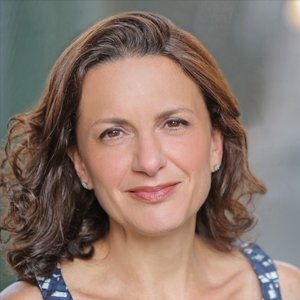Deborah Marton
Deborah Marton is the Executive Director of Van Alen Institute, a non-profit organization that promotes equitable cities through inclusive design. She has previously held leadership roles at the New York Restoration Project and the Design Trust for Public Space, and has also worked on projects such as the Fresh Kills Master Plan and the creation of a new purpose-built NYC taxi. Deborah holds degrees from the University of Pennsylvania, New York University School of Law, and the Harvard Graduate School of Design.
What we learnt
Deborah Marton firmly believes that community leaders and organizations should have a significant role in determining where philanthropic funding should be directed. Rather than imposing top-down programs on communities, she stresses the importance of building trust and co-creating solutions with them. Van Alen's focus has shifted from educating architects to collaborating with leaders and historically disinvested communities to achieve their vision for their built environment. The Institute launched the Neighborhoods Now program during the pandemic to accelerate its experience in this way and is now seeking to expand its impact by training similar organizations in other US cities.
For Marton, successful community-led philanthropy requires long-term commitments and respect for those on the ground, necessitating a holistic approach to funding that supports the overall health and well-being of the community. Van Alen has developed a theory of change that is centered around inclusive design, co-creating programs with leaders in historically disinvested communities, and has equitable cities as its North Star. To measure the success of their theory, Van Alen has established a measurement framework that identifies both qualitative and quantitative data. They are currently partnering with JP Morgan's Force For Good initiative to create assist systems for nonprofits. One of the challenges of impact investing is the ROI, which is not always quantifiable in traditional ways. Marton suggests exploring new financial products that connect investments with social outcomes at the population scale to address poverty.
Marton also advocates for faster funding over passive research, emphasizing that investing in communities' ideas and initiatives as quickly as possible is the most effective way to support them. This approach enables communities to take ownership of their projects and create momentum towards long-term change.
In conclusion, Marton stresses the importance of listening to community leaders and organizations, building trust and co-creating solutions, respecting experience, using values-based criteria, and providing faster funding over passive research in community-led philanthropy. By doing so, philanthropic organizations can support communities in achieving long-term, sustainable change.
Key quotes
‘It's all about respecting experience; I don't tell other people how to run their business. In fact, it's tiresome to have funders dictate how you should run your business. Why should they understand how to do the work better than you? They're just looking for something to fund. Frequently, the way programs are framed, like innovation prizes and such, ignores the good work that's already being done... Let's look at the folks who have been doing it for decades and respect the fact that they might know something.’
‘You start small, get to know what the needs are, and just keep going. But to me, a 5 or 10-year commitment is really the way to make real change. You have to bring the startup spirit to it because you don't necessarily know where you're going to be at the end of 10 years. So you have to build learning and iteration into the core of how you operate. Every year, you're having retrospectives, understanding what works and what doesn't work, and advancing. The commitment has to be to a set of values that are shared, with respect for the expertise and knowledge of leaders who live in these communities.’
‘Top down programs invented by people who aren't living the lives that they want to affect are, to me, fundamentally flawed in their conception. What it needs to be is, think about what your values are, and then listen to the people who you want to benefit from your support and your generosity, and then help them to achieve what they want to achieve.’
‘The people that I collaborate with every day in New York City's historically disinvested communities are among the most resourceful, dedicated leaders I've ever encountered in my life, because they do so much with so little. And why they're not in those rooms is because they spend their everyday putting out fires. And so Van Alen exists to bring those folks to the table’
